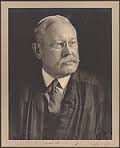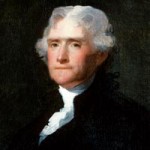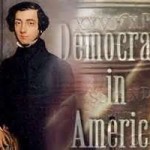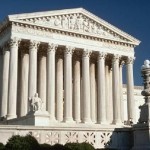For Drafters of the Constitution, a vexing problem was to establish a government that would give life to the philosophies of the Declaration of Independence and meet the practical political considerations of merging diverse states of differing size and traditions into a nation. Among the solutions was the Constitution’s Origination Clause in Article I, Section […]
Constitution’s “Origination Clause”: Why Revenue Bills Start in the House, Part 2
Constitution’s “Origination Clause”: Why Revenue Bills Start in the House, Part 1
This is Part 1 of a three part series discussing the Constitution’s Origination Clause. Part 2 explains the Senate procedure of “gut and replace”. Part 3 explains why “gut and replace” violates the Constitution. There are overriding principles embodied in the US Constitution, derived from the Declaration of Independence. These principles are beliefs about the […]
First Amendment to the Constitution: Freedom of the Press
Like Freedom of Religion and Freedom of Speech, in the United States the concept of Freedom of the Press as it developed has been uniquely American. Along with free speech for the general population, it is surely the source of what has become known as American Exceptionalism. American Exceptionalism Alexis de Tocqueville originally referred to […]
The First Amendment to the Constitution: Freedom of Speech
The US Constitution’s first ten amendments are called The Bill of Rights. The First Amendment limits the authority of government to enact laws impinging upon the natural rights of the people to practice religion, engage in speech, publish their ideas and assemble together to petition their government. Freedom of religion is the first named freedom. The second named […]
The Origin and Meaning of the Miranda Warnings
The Miranda warnings are part of American criminal justice and American popular culture. Where do they come from? What do they mean? Ernesto Miranda was the name of a 23 year old Mexican immigrant. The United States Supreme Court in 1966 announced a constitutional rule of criminal procedure requiring that police must advise a suspect of several […]
Gideon v. Wainwright, 50 Years Later, Did Clarence Gideon Write His Appeal? Part 2
Clarence Earl Gideon had an eighth grade education and a long criminal history. He had been sentenced to prison for the fifth time. Upon his arrival he began to study law for long hours in the prison library. As the story goes, eventually, with a pencil and paper he scratched out an appeal to the […]
Gideon v. Wainwright, 50 Years Later, Did Clarence Gideon Write His Appeal? Part 1
Thanks to television crime dramas and police shows, everyone is familiar with the following: “You have the right to an attorney. If you cannot afford an attorney, one will be provided for you.” The story of those familiar words started with a Bay Harbor, FL poolroom break-in in 1961. The break-in resulted in the arrest, […]
New HHS Contraception Mandate Rules Create a Shell Game
On Friday, February 2, 2012, the Obama administration released new Department of Health and Human Services[1] (HHS) contraception mandate rules. The government contends the new rules address the religious objections resulting in lawsuits from its existing rules. On close inspection the changes are an Orwellian shell game. There are currently 44 lawsuits across the country opposing the mandate […]
Article III of the US Constitution: The United States Supreme Court
The United States federal government is divided into three branches, separating government’s principal powers among different actors. The Constitution defines the powers of each branch. Article I defines the legislative, or congress. Article II defines the executive, or presidency. Article III creates broad outlines for the judicial, primarily the Supreme Court. Article IV defines the relations […]















Natural Law and the Legitimate Authority of the United States
Government needs a basis to exercise authority over people. Citizens must accept government authority. A government lacking acceptance of the people over whom it exercises authority will not endure. Such acceptance comes from fear, tradition or philosophy. Dictators obtain authority by instilling fear of disobedience in the populace. A theocracy ordained by God arises from […]